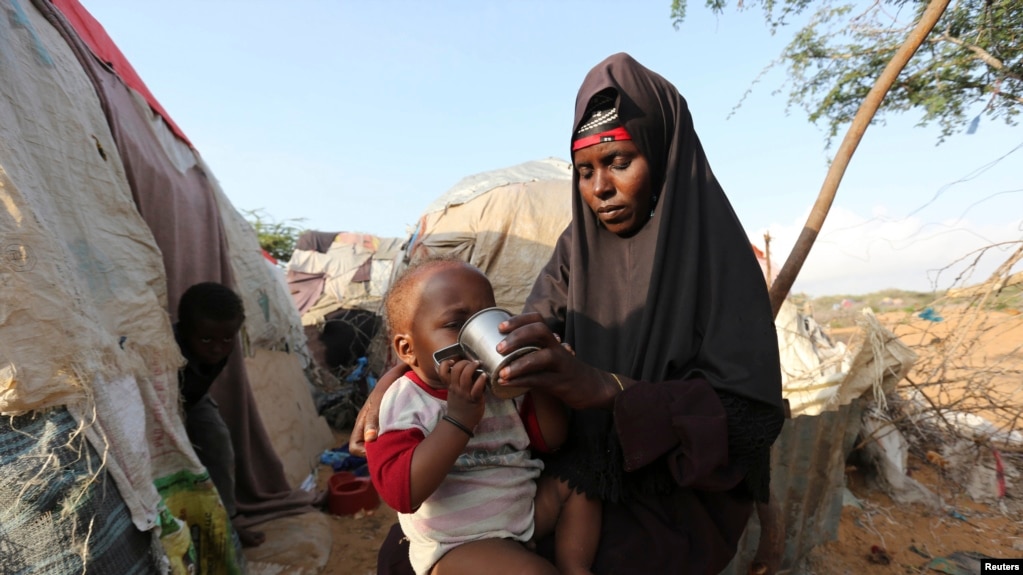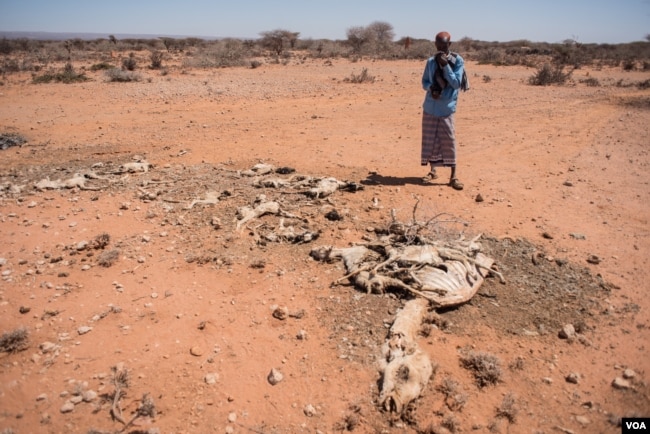IOM Launches Somalia Emergency Appeal Amid Famine Warning
 FILE – Rukia Nur feeds her child outside her makeshift dwelling after fleeing famine in the Marka Lower Shebbele regions to the capital Mogadishu.GENEVA —
FILE – Rukia Nur feeds her child outside her makeshift dwelling after fleeing famine in the Marka Lower Shebbele regions to the capital Mogadishu.GENEVA —
The International Organization for Migration (IOM) is appealing for $24.6 million to provide life-saving assistance to hundreds of thousands of the most vulnerable victims of Somalia’s drought. Many of them are now under threat of famine.
Humanitarian agencies report alarming similarities between the current situation in Somalia and the 2011 famine that killed more than one quarter of a million people.
The IOM warns the severity of this new drought could put an even greater number of people at risk. IOM spokeswoman Olivia Headon says a huge increase in humanitarian aid is needed to avert famine in some of the worst-affected areas.
“Wages are collapsing, local food prices are rising, animal deaths are increasing, malnutrition rates are starting to rise, water prices are spiraling and Somalis are moving in growing numbers in search of food and water. Without assistance, many people face malnutrition, and significantly increased risk of disease, loss of livelihoods and even death,” Headon said.

Mohamed Aden Guleid looks at one of his camels on which succumbed to drought in Somaliland region of Somalia, Feb. 9, 2017. (VOA/Jason Patinkin)
The IOM appeal is targeting more than one million of the estimated 6.2 million drought-affected Somalis in need of assistance through June. Headon told VOA that the IOM and other aid agencies have been increasing their humanitarian operations over the past few months to prevent people from starving.
“We are hoping that the surge of our staff and supplies and activities will continue for the next couple of weeks and then we will be up to full capacity in order to respond; but, we can only do that if we have the appropriate resources to do so. So, that is why we are launching this now even though we have been responding, even though we have already been alerting about the situation,” she said.
Headon added it will be almost impossible to respond to the needs of this drought without funding from international donors. She said priority needs include food, water and sanitation, health and nutrition, protection and shelter.
Source:Voice Of America/VOA